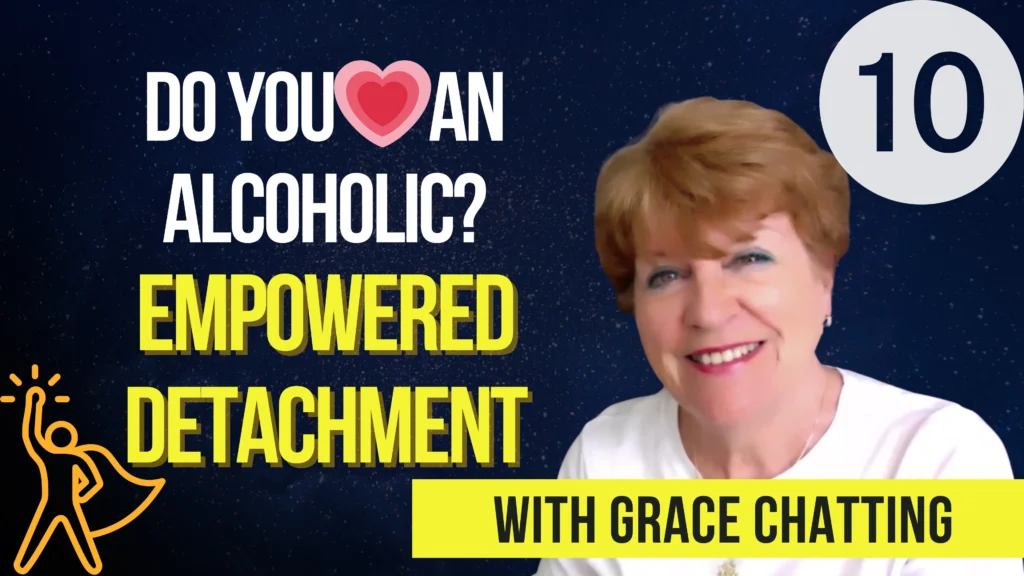Empowered Detachment: How to Lovingly Step Back While Your Partner Finds Recovery
(Article 10 of the I Love an Alcoholic series)
When you love someone struggling with alcoholism, every cell in your body can ache to help—to fix, to rescue, to protect. This instinct is rooted in love, of course, but it can easily spiral into over-involvement, anxiety, and emotional depletion. It’s easy to confuse devotion with control, or concern with responsibility.
This is where the life-saving, soul-restoring practice of empowered detachment comes in.
Detachment is often misunderstood. It doesn’t mean turning cold, walking away, or abandoning someone. In truth, empowered detachment is the most loving, respectful, and courageous gift you can offer—to both yourself and your partner.
In this article, we’ll explore what empowered detachment really is, why it matters, how to practise it in daily life, and how it can become your key to emotional freedom and relational clarity.
🫂JOIN MY FREE RECLAIM YOUR LIFE FACEBOOK GROUP TODAY! 🫂
What Is Empowered Detachment?
Empowered detachment is the conscious, compassionate act of releasing responsibility for your partner’s addiction and healing. It means stepping back emotionally and energetically—not from love, but from the illusion of control.
You stop trying to manage their recovery, and instead, anchor yourself in your own wellbeing, truth, and boundaries.
Al-Anon, the worldwide support group for those affected by another’s alcoholism, describes it like this:
“Detachment means separating ourselves emotionally from the addict’s choices while still loving them. We allow them to live their own life while we live ours.”
It’s not harsh and not selfish. It is essential.
SIGN UP TO MAILING LIST
Why Detachment Is So Difficult (and So Necessary)
As partners of those with addiction, many of us have been conditioned to believe that loving someone means being needed—rescuing, fixing, smoothing over consequences. We fear that stepping back is abandonment, or that if we don’t hold everything together, it will all fall apart.
But the deeper truth is this: No amount of over-functioning will bring another person to recovery. Only they can choose it.
Psychotherapist and author Melody Beattie, a pioneer in understanding codependency, writes:
“When we stop trying to control others and start caring for ourselves, we begin to heal. Detachment allows love to flow more freely, without desperation or fear.”
(Melody Beattie, Codependent No More)
The Difference Between Loving and Fixing
Loving is grounded in presence, respect, and clear boundaries.
Fixing is driven by fear, guilt, and the illusion of control.
Here’s the difference:
| Fixing | Loving with Detachment |
| I must keep them from failing. | I allow them to face their consequences. |
| Their relapse is my fault. | Their choices are theirs. I choose peace. |
| If I don’t help, I don’t care. | I care enough to stop enabling. |
| I must always be there. | I honour my limits and take space when needed. |
When you detach with love, you are saying:
“I trust you to find your way. And I trust myself to stay well in the meantime.”
How to Practise Empowered Detachment in Daily Life
Here are grounded, compassionate ways to begin embodying this powerful practice:
-
Reclaim Your Emotional Centre
Start noticing how often your mood shifts based on your partner’s behaviour. Begin the practice of grounding yourself in your own emotions, needs, and truth. This can be as simple as pausing to breathe, journal, or ask yourself: “What do I need right now?”
-
Let Consequences Unfold
This is one of the hardest parts—but also the most transformative. If your partner drinks and loses their job, lies, or creates conflict, allow the natural consequences to occur. Shielding them from pain delays growth. Growth is born in discomfort, not rescue.
“Sometimes we must love people enough to allow them to fall—and get up on their own.”
(Grace Chatting)
-
Focus on Your Own Healing
Your partner’s journey is theirs. Yours is yours. Attend therapy. Join a support group. Meditate. Reconnect with your creativity, friendships, spiritual practices. When you invest in yourself, you model wholeness, resilience, and sovereignty.
-
Use Loving, Firm Boundaries
Detachment doesn’t mean silence or distance without explanation. It means speaking your truth, calmly and kindly:
- “I’m stepping back from managing your recovery. I trust that if you want help, you’ll seek it.”
- “I love you, but I won’t argue when you’re under the influence. I will leave the room.”
Boundaries create emotional safety—for both of you.
SIGN UP TO MAILING LIST
How Empowered Detachment Affects the Family
When you begin detaching in love, your whole family benefits:
- Children feel safer, witnessing a parent who models calm strength instead of emotional reactivity.
- You regain clarity, which reduces anxiety and restores emotional health.
- Your partner is given the dignity of responsibility, which is a foundational step toward authentic recovery.
Detachment creates space—space for healing, truth, and choice to emerge.
Facing the Fear of Letting Go
Letting go can feel terrifying. You may fear losing your partner, provoking a relapse, or being judged. These fears are understandable—but they are not reality. What truly hurts us is staying in cycles of emotional entanglement, guilt, and false responsibility.
Empowered detachment is not the end of love. It is the beginning of real love—the kind rooted in truth, strength, and freedom.
“Letting go doesn’t mean I stop loving. It means I start loving myself, too.”
(Al-Anon)
You Are Allowed to Step Back
Today, you are lovingly invited to take a step back—not away, but inward. Toward your own peace. Your own wisdom. Your own centre.
You are not abandoning anyone. You are honouring your soul.
And in doing so, you may become the very light that gently, powerfully illuminates the path for others—without pushing, without dragging, without despair.
Always remember:
“To detach is to trust—yourself, life, and the other person’s capacity to grow. It is one of the deepest forms of love there is.”
(Grace Chatting)

